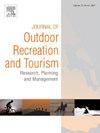休闲自由感知对游客心理健康的影响:来自西山国家森林公园的证据
IF 4.4
3区 管理学
Q1 HOSPITALITY, LEISURE, SPORT & TOURISM
Journal of Outdoor Recreation and Tourism-Research Planning and Management
Pub Date : 2025-07-07
DOI:10.1016/j.jort.2025.100920
引用次数: 0
摘要
森林休闲体验是公认的心理健康的来源。然而,作为休闲体验的一个重要方面,感知休闲自由对森林公园PWB的具体影响仍未得到充分研究。以基本心理需求理论(BPNT)为指导,对404名森林公园游客进行了调查,并采用PLS-SEM对数据进行了分析。本研究探讨了休闲自由感与身心健康之间的关系,以及自我修复和教育在这一关系中的调节作用。研究发现,休闲自由感知的四个维度(能力感知、控制感知、需求感知和参与感知深度)与森林公园游客的PWB呈显著正相关。自我修复强化了知觉控制和参与深度的影响,而教育削弱了知觉控制的影响。这些发现为森林公园旅游影响人们PWB的可能机制提供了新的见解,并进一步为实践者和决策者提供了一些管理启示。本文章由计算机程序翻译,如有差异,请以英文原文为准。
The influence of perceived freedom in leisure on visitors' psychological well-being: Evidence from Xishan National Forest Park, China
Forest leisure experience is a recognized source of psychological well-being (PWB). However, as an essential aspect of the leisure experience, the specific influence of perceived freedom in leisure on PWB in forest parks remains understudied. Guided by Basic Psychological Needs Theory (BPNT), we surveyed 404 forest park visitors and used PLS-SEM to analyze the data. The relationship between perceived freedom in leisure and PWB was explored, along with the moderating roles of self-restoration and education in that relationship. Findings indicated that all four dimensions of perceived freedom in leisure (perceived competence, perceived control, perceived needs, and perceived depth of involvement) were positively associated with forest park visitors’ PWB. Self-restoration strengthened the effects of perceived control and depth of involvement, yet education weakened the impact of perceived control. These findings offered new insights into the possible mechanisms through which forest park visit affects people's PWB and further provided some managerial implications for practitioners and policymakers.
求助全文
通过发布文献求助,成功后即可免费获取论文全文。
去求助
来源期刊

Journal of Outdoor Recreation and Tourism-Research Planning and Management
HOSPITALITY, LEISURE, SPORT & TOURISM-
CiteScore
6.70
自引率
5.30%
发文量
84
期刊介绍:
Journal of Outdoor Recreation and Tourism offers a dedicated outlet for research relevant to social sciences and natural resources. The journal publishes peer reviewed original research on all aspects of outdoor recreation planning and management, covering the entire spectrum of settings from wilderness to urban outdoor recreation opportunities. It also focuses on new products and findings in nature based tourism and park management. JORT is an interdisciplinary and transdisciplinary journal, articles may focus on any aspect of theory, method, or concept of outdoor recreation research, planning or management, and interdisciplinary work is especially welcome, and may be of a theoretical and/or a case study nature. Depending on the topic of investigation, articles may be positioned within one academic discipline, or draw from several disciplines in an integrative manner, with overarching relevance to social sciences and natural resources. JORT is international in scope and attracts scholars from all reaches of the world to facilitate the exchange of ideas. As such, the journal enhances understanding of scientific knowledge, empirical results, and practitioners'' needs. Therefore in JORT each article is accompanied by an executive summary, written by the editors or authors, highlighting the planning and management relevant aspects of the article.
 求助内容:
求助内容: 应助结果提醒方式:
应助结果提醒方式:


